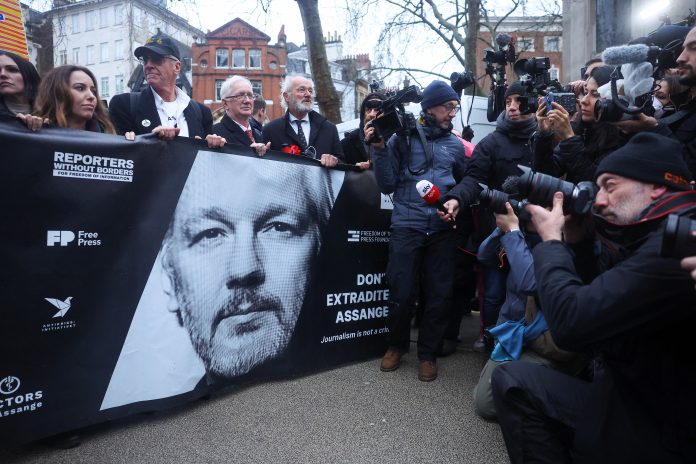London’s High Court will decide on Tuesday whether WikiLeaks founder Julian Assange can appeal his extradition from Britain to the United States, in what could be his last trial in British courts.
US prosecutors want to put Assange, 52, on trial on criminal charges related to WikiLeaks’ release of vast swathes of confidential US military documents and diplomatic dispatches. According to them, the leaks threatened the lives of their agents and there is no excuse for his crime. However, Assange’s supporters call him a journalistic hero who is being prosecuted for exposing US misconduct.
Britain approved his extradition in 2022, and he has been trying to overturn that decision ever since. A first attempt to appeal against the transfer was rejected, leading to a two-day hearing last month as his lawyers tried to overturn the decision. The two senior judges will deliver their judgement at 10:30 GMT on Tuesday.
If Assange wins, there will be a full appeal hearing to consider his complaint again. If he loses, his last option will be to appeal to the European Court of Human Rights. His wife Stella Assange posted on X:
“This is it. DECISION TOMORROW.”
Julian Assange’s legal cases began in 2010 and he subsequently spent seven years in the Ecuadorian embassy in London before he was pulled out and jailed in 2019 for breaching bail conditions. He has since been held in a high-security prison in south-east London and even got married there.
During the hearing in February, Assange’s team claimed the prosecution was politically motivated and said he was targeted for exposing “state-sponsored offences”. They said former US President Donald Trump had requested “detailed options” on how to kill him.
US lawyers said he was not being prosecuted for publishing the leaked material, but for aiding and conspiring with former US Army intelligence analyst Chelsea Manning to obtain it illegally, then revealing the names of the sources and “exposing those individuals to serious risk of harm”.
WikiLeaks first came to light in 2010 when it published a video depicting the 2007 attack on Baghdad by US Apache military helicopters that killed a dozen people, including two Reuters news agency employees.
